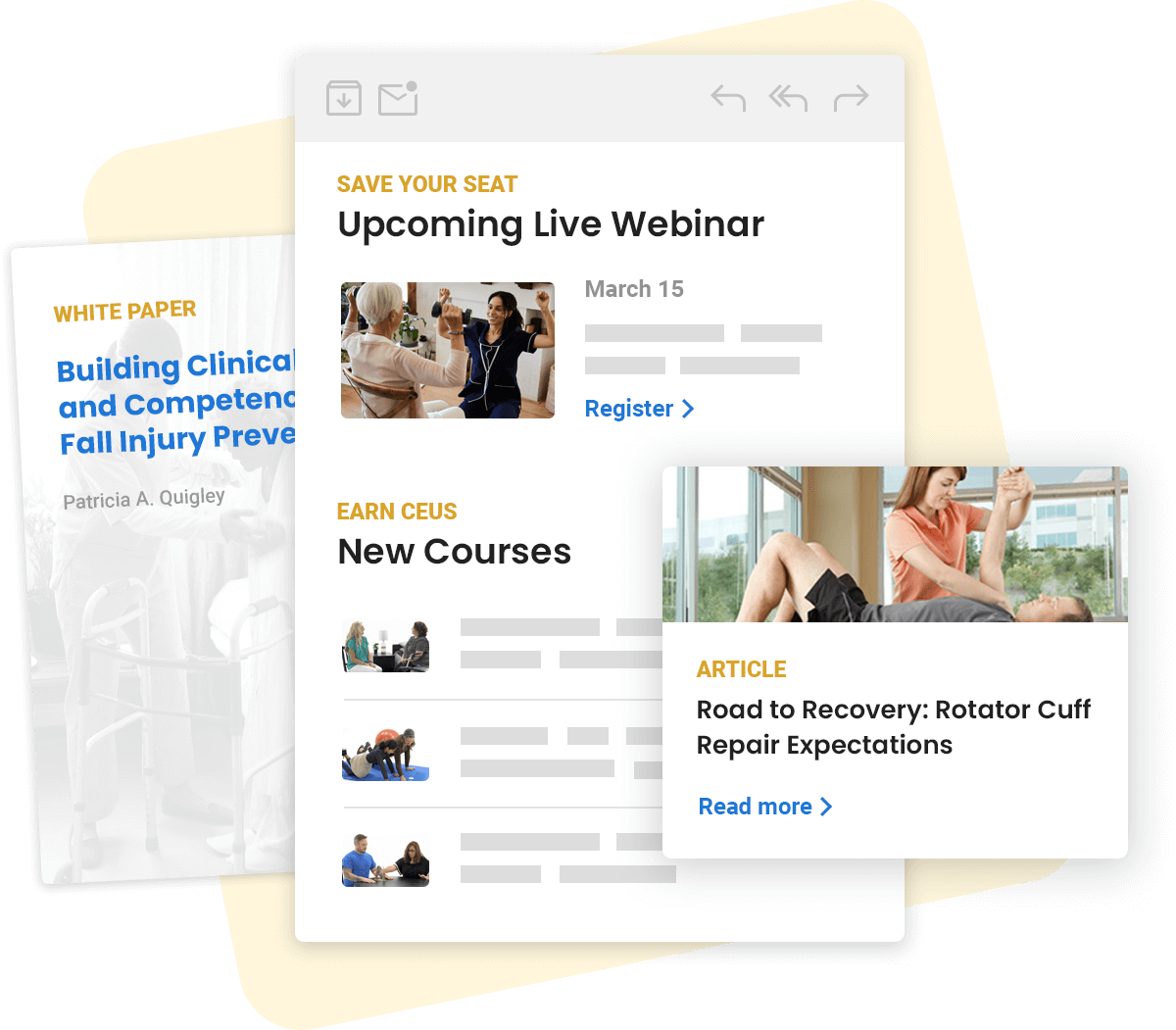The Speech-Language Pathology Assistant’s Role in Caregiver Coaching

In many on-site clinical environments prior to COVID-19, SLPs and SLPAs interacted primarily with the client while the caregiver observed quietly, or perhaps waited in an outside area. In school settings, parent/professional interaction may have been limited to quarterly reports and semi-annual parent-teacher conferences.
Fast forward to today.
Clinic and school buildings have closed, and clients are limiting interactions outside their homes. Telepractice services are now a reality for most speech-language professionals. In many cases, this means that we are providing services remotely to clients who remain in thier homes with caregivers present and participating in treatment. Delivering treatment through an unfamiliar platform while managing caregiver participation and input can be quite challenging at times!
Along with these new challenges, we experience benefits of providing telepractice services. Seeing clients in their homes helps us to understand them and families much better. And because caregivers are often present during treatment, we have increased opportunities to engage them in the therapy process and encourage them to facilitate progress on communication goals through caregiver coaching.
What Is Caregiver Coaching?
Caregiver coaching involves service providers training caregivers to implement intervention strategies. Coaching also includes the service provider actively engaging the caregiver in the decision-making process for therapy by gathering information about routines and skills that are important in their daily lives, which can be addressed in treatment.
The goal of caregiver coaching is to increase the caregiver’s self-confidence to support the client’s communication in typical home routines and activities. Strategies for caregiver coaching may involve direct teaching of strategies with or without narration, guided practice with feedback, problem solving, and reflection.1
While SLPs may be able to seamlessly incorporate caregiver coaching into their therapy, this task is a bit more daunting for SLPAs who have more limits on their training and scope of practice. Consider these questions as you implement SLPA caregiver coaching in your practice.
Can SLPAs Provide Caregiver Coaching?
States vary in their regulation of SLPA practice, so each practitioner must first consult their state’s SLPA regulations.
The ASHA Speech-Language Pathology Assistant Scope of Practice states that SLPAs “perform tasks as prescribed, directed, and supervised by ASHA-certified speech-language pathologists (SLPs)” and indicates that the SLP must ensure that quality of care and professionalism will not be compromised. These statements make clear that any caregiver coaching provided by the SLPA must be done so at the supervising SLP’s direction and that the SLP must verify that the SLPA has the necessary skills and level of professional communication to provide the coaching.
While the SLPA Scope of Practice clearly states that the SLPA may not provide “interpretative information to the student/patient/client, family, or others,” it does not preclude the SLPA from interacting with caregivers as part of the treatment provided under the SLP’s direction. In fact, the SLPA Scope of Practice indicates that the SLPA may interact with caregivers to provide instruction and demonstrations, specifically in feeding strategies.2
How Can We Achieve Caregiver Coaching Competence?
Once the SLP and SLPA have determined that caregiver coaching is allowed in their state, the SLP must verify the SLPA’s competence as a caregiver coach. This may require training the SLPA in coaching strategies using evidence-based speech pathology courses. The use of a specific model or framework can facilitate this training.
The Family Guided Routines Based Intervention (FGRBI) and Caregiver Coaching approach is a model designed for early intervention services; however, the same coaching principles may be applicable to work with older children and adult clients and caregivers. Training tools, competency checklists, video illustrations, and mobile coaching training tools for delivery of caregiver coaching, both on-site and via video conferencing, are available on the FGRBI website.3
Incorporating SLP modeling of caregiver coaching (“I do”), SLPA opportunities to participate in coaching with direct SLP supervision and guidance (“we do”), and SLPA demonstration of unguided coaching during direct SLP supervision (“you do”) into the training plan will help to ensure the SLPA’s competence and confidence in caregiver coaching.
What Strategies Will Ensure that Caregiver Coaching is Planned and Purposeful?
The SLP should prescribe caregiver coaching and document this in the client’s treatment plan to ensure that any coaching services provided by the SLPA are done so at the SLP’s direction. Documentation should include the communication goals being addressed and the coaching strategies to use.
The SLP and SLPA should take care to schedule direct supervision during sessions when caregiver coaching is part of the prescribed treatment plan. The SLPA should document the coaching content and strategies delivered along with the caregiver’s response to the coaching in each session. Because caregiver coaching will increase SLPA communication with individuals other than the client, the SLPA must fully document the caregiver’s input regarding their questions, concerns, and priorities and then communicate that input to the SLP in a timely fashion.
The challenge of providing telepractice services to clients in their homes has provided us with an opportunity to implement planned and purposeful caregiver coaching. With careful attention to training, competence, and documentation, SLPAs can add value to our speech-language therapy services as skilled coaches.
- Brown, J. A. (2016). Coaching in parent-implemented early communication interventions: understanding and overcoming individual-level implementation barriers. Perspectives of the ASHA Special Interest Groups, 1(1), 144–153.
- American Speech-Language-Hearing Association. (2013). Speech-Language Pathology Assistant Scope of Practice [Scope of Practice]. Retrieved from American Speech-Language-Hearing Association: https://www.asha.org/policy/SP2013-00337/
- Family Guided Routines Based Intervention . (2020). Caregiver Coaching . Retrieved from Family Guided Routines Based Intervention : http://fgrbi.com/caregiver-coaching/
- Center for Early Literacy Learning . (n.d. ). Center for Early Literacy Learning Parent Resources . Retrieved from Center for Early Literacy Learning : http://www.earlyliteracylearning.org/parentresource1.php









